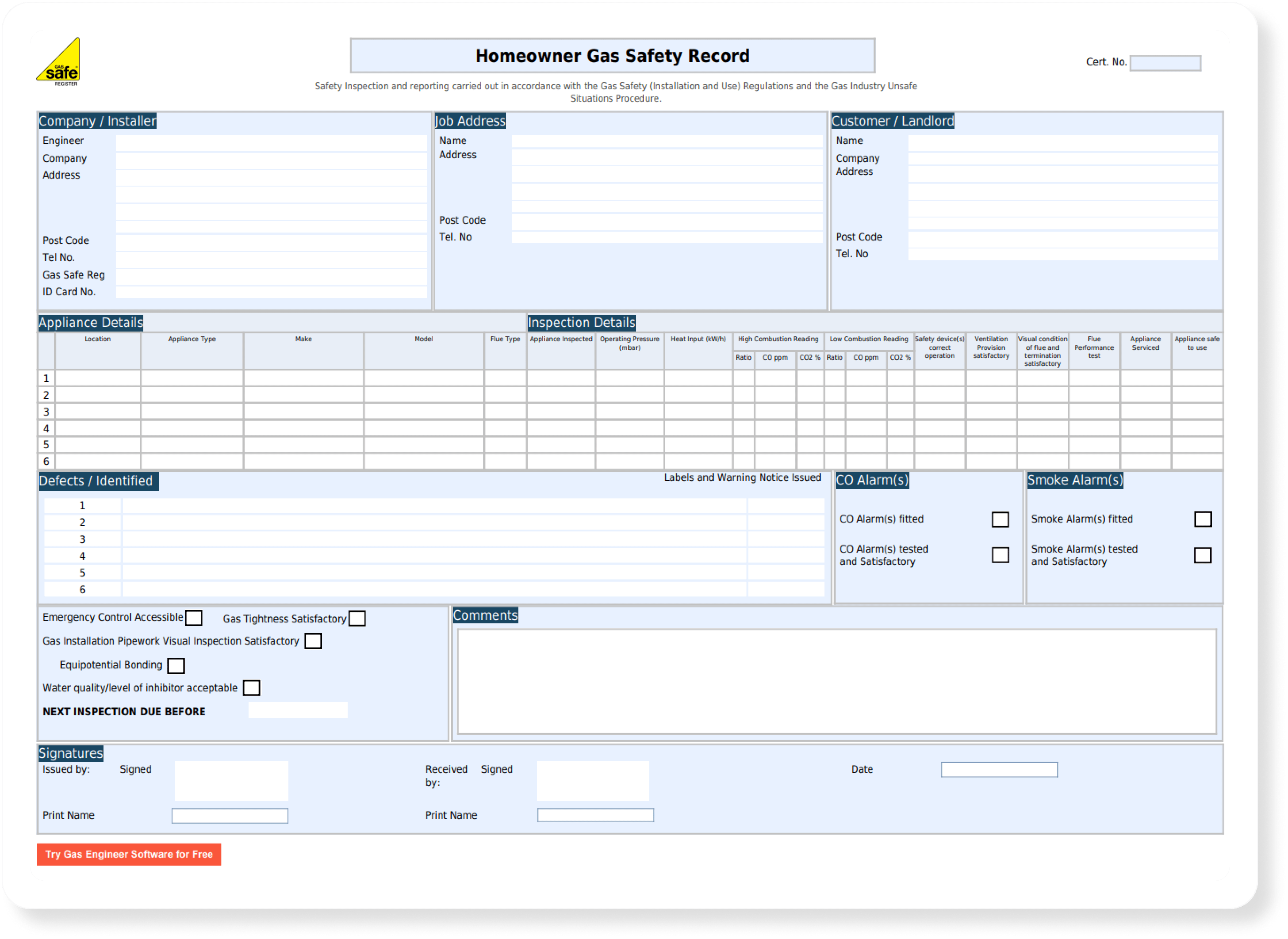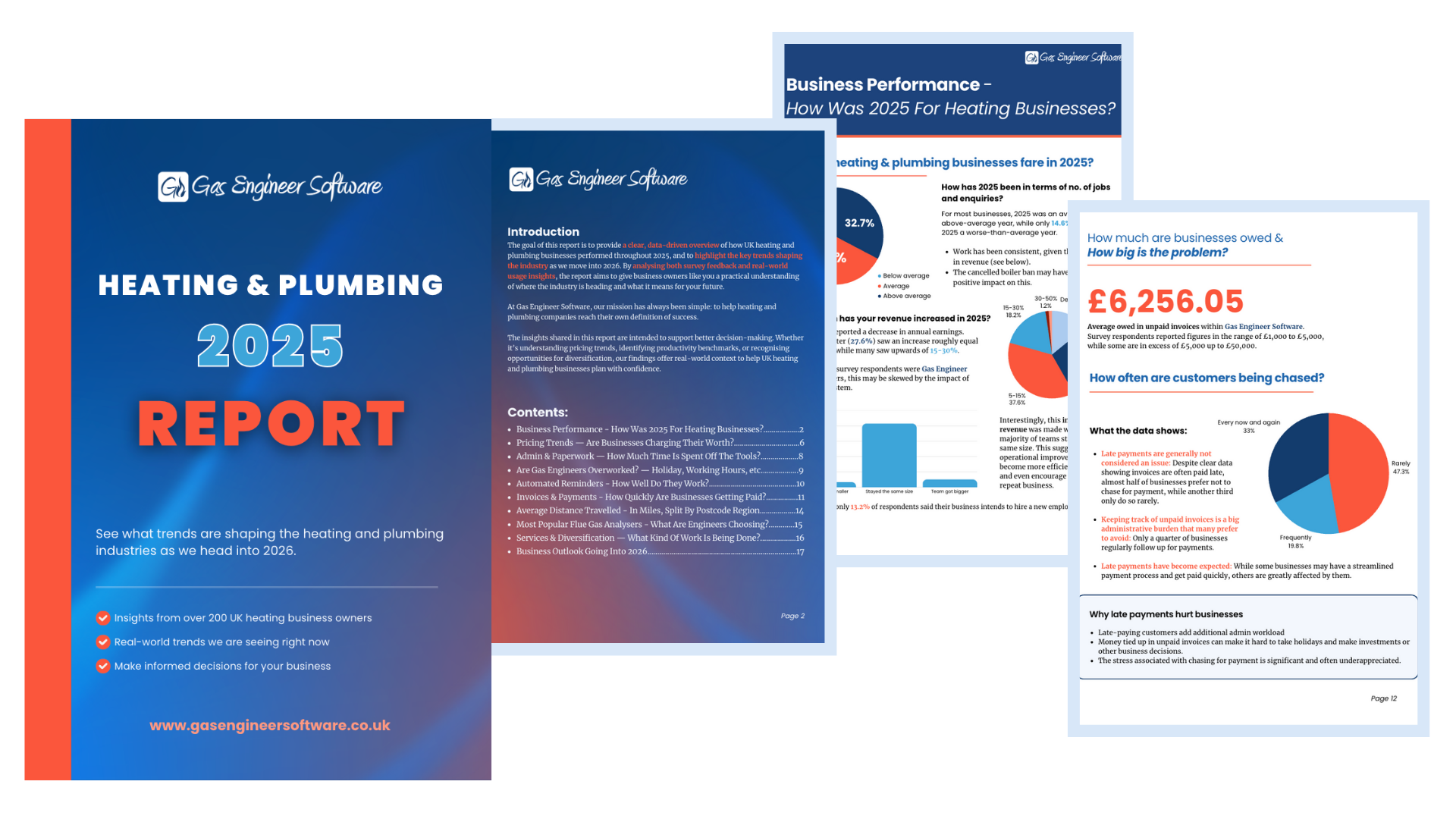How to Become a Gas Engineer in the UK: A 2025 Guide
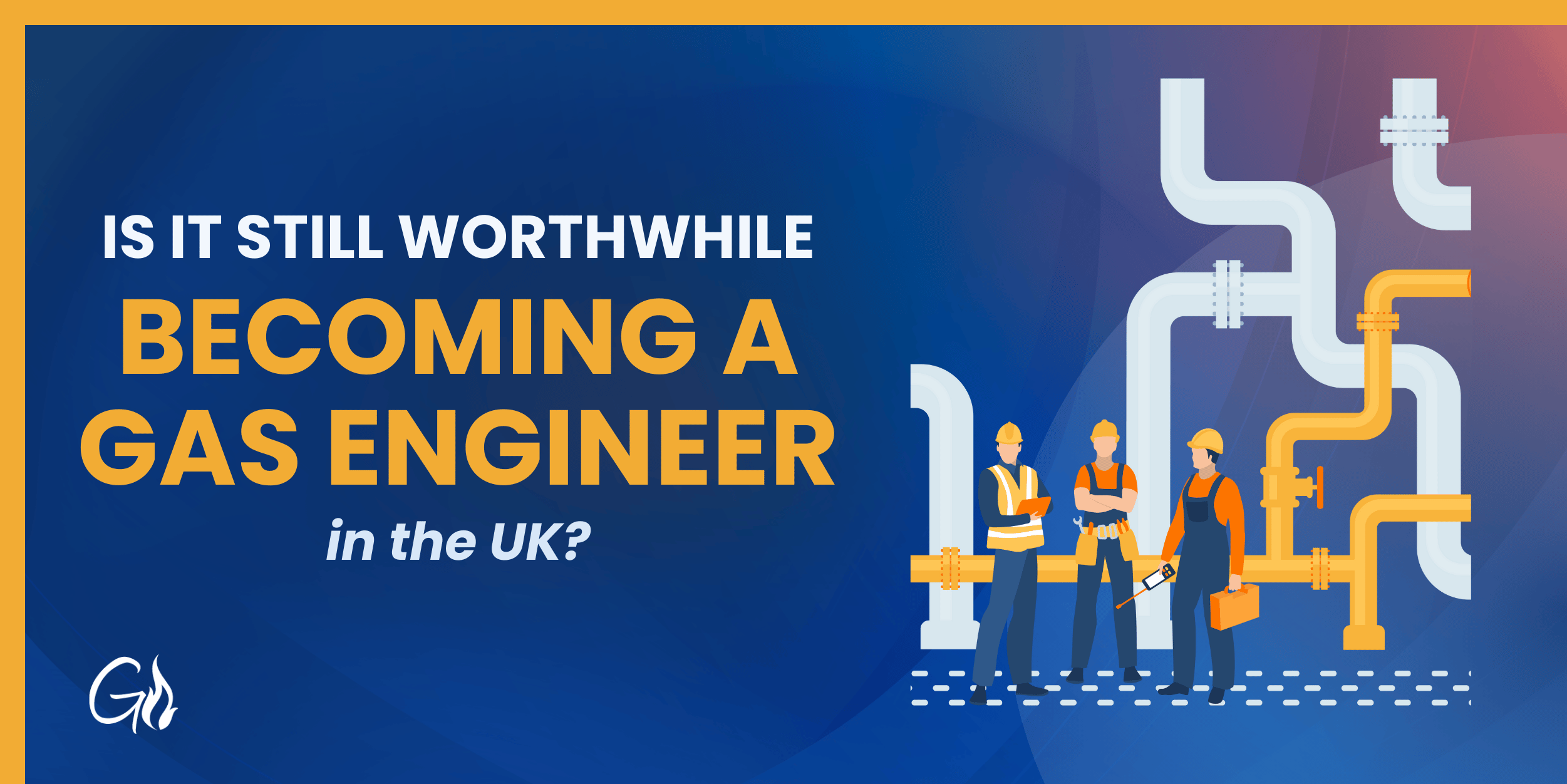
Thinking about a career in the heating industry? Becoming a gas engineer is a fantastic choice for those who enjoy practical, hands-on work and want a skill that is always in demand. It’s a rewarding profession that offers great earning potential, job security, and the satisfaction of solving real-world problems for customers every day.
The future of the industry is also bright. While the UK is moving towards renewable energy, millions of homes will rely on gas for heating and cooking for decades to come, meaning the need for skilled engineers to install, service, and maintain these systems is not going away.
Furthermore, the skills you gain as a gas engineer are the perfect foundation for transitioning to new technologies (with heat pumps being a big one).
In this guide, we’ll walk you through everything you need to know about becoming a gas engineer in 2025.
Main Takeaways
- Average Salary: £25,000 (newly qualified) to £45,000+ (experienced/self-employed).
- Expected Training Time: 6 months to 2 years, depending on your chosen route.
- Working Hours: Typically 40-45 hours per week, with potential for overtime and on-call work.
- Expected Training Cost: £5,000 to £15,000.
What Are Gas Engineers, and What Do They Do?
A gas engineer is a legally qualified professional responsible for installing, maintaining, and repairing gas appliances and heating systems in homes and businesses. It’s a varied role that requires technical knowledge, problem-solving skills, and great customer service.
A typical day could involve:
- Installing a new central heating boiler.
- Carrying out an annual boiler service.
- Completing a Landlord Gas Safety Record (CP12).
- Diagnosing and fixing a fault on a heating system.
- Responding to emergency gas leaks.
- Installing gas hobs, cookers, and fires.
Many gas engineers also become skilled plumbers, carrying out work on bathrooms, kitchens, and water tanks.
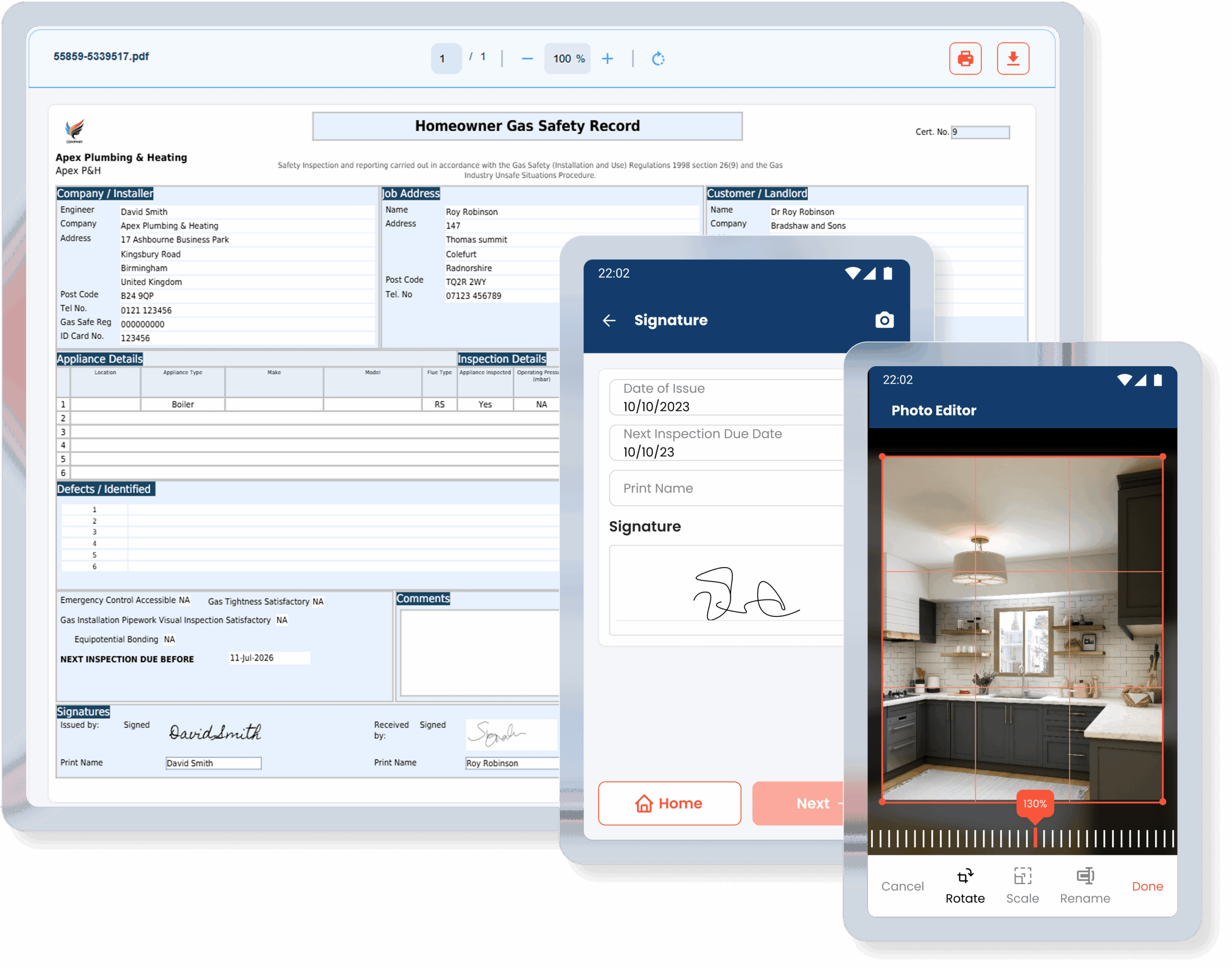
What Qualifications Do Gas Engineers Need?
To legally work on any gas appliance in the United Kingdom, you must be on the Gas Safe Register.
To get on the register, you first need to gain the right qualifications. The industry-standard certification is the ACS (Accredited Certification Scheme). This is broken down into a core qualification and separate qualifications for each appliance you want to work on.
- Core Qualification: The main one for domestic work is CCN1 (Core Domestic Gas Safety). You must pass this before you can take any appliance assessments.
- Appliance Qualifications: Once you have your CCN1, you can add qualifications for specific appliances, such as:
- CENWAT: For central heating boilers and water heaters.
- CKR1: For gas cookers.
- HTR1: For gas fires.
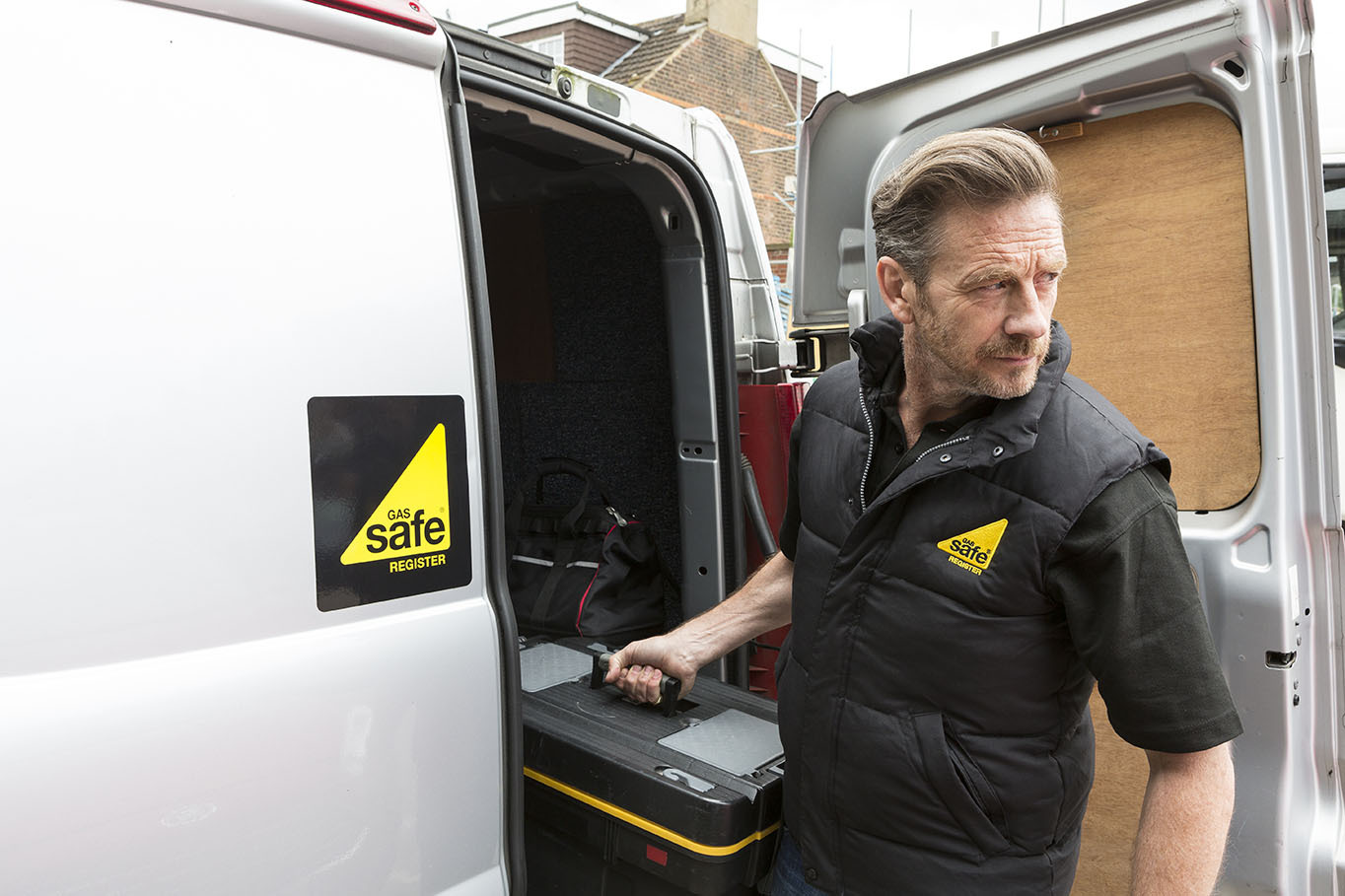
Commercial Qualifications
To work on gas appliances and pipework in commercial buildings (like offices, schools, and factories), you need separate commercial gas qualifications. Engineers typically start with domestic qualifications before progressing to commercial work.
The commercial route also follows the ACS pathway, but with different codes:
- Core Qualification: The commercial equivalent of CCN1 is either COCN1 (Core Commercial Gas Safety) or a more specific core like CIGA1 (Core Commercial Indirect Fired Gas Appliances), depending on the type of work.
- Appliance Qualifications: After completing a commercial core, you can qualify for specific types of commercial equipment, such as:
- CORT1: For overhead radiant tube and plaque heaters.
- CDGA1: For commercial direct-fired gas appliances.
- ICPN1: For the installation of commercial pipework.
How Long Does It Take to Become a Gas Engineer?
The time it takes to get qualified depends entirely on your training path.
- Apprenticeship: This route typically takes between 2 and 4 years and combines on-the-job work with college-based learning.
- Intensive Training Course: Often called a Managed Learning Programme (MLP), this route is faster and is popular with career changers. It can take around 6 months to complete, including the essential portfolio placement.
The Process of Becoming a Gas Safe Registered Engineer (Step-by-Step)
The journey to becoming a legally qualified engineer follows a clear, structured path.
- Choose a Training Route: Decide whether an apprenticeship or an intensive MLP course is the right fit for you and enrol with an approved training centre.
- Complete Your Training: This involves classroom-based theory and practical training in a workshop environment to build your foundational skills.
- Build Your On-Site Portfolio: This is a critical step. You must work alongside a registered Gas Safe engineer to gain and document a wide range of real-world gas work experience.
- Pass Your ACS Assessments: Once your portfolio is complete, you’ll return to the training centre to sit your final written and practical ACS exams.
- Apply to the Gas Safe Register: With your ACS certificates in hand, you can now apply to the Gas Safe Register. Once approved, you’ll receive your license and can legally work on gas appliances.
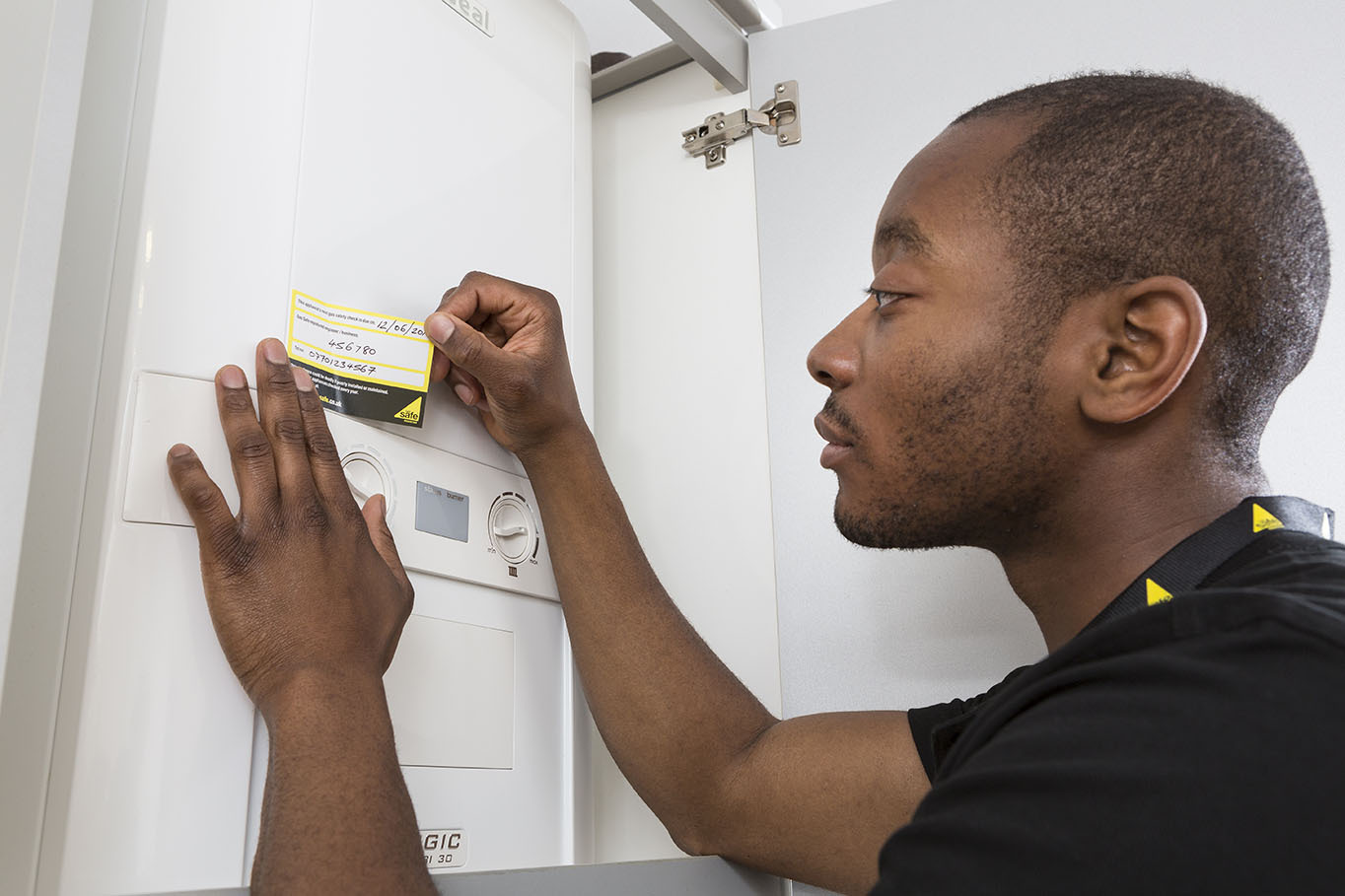
How Much Does It Cost to Train as a Gas Engineer?
Training to become a gas engineer depends on your chosen route. You should budget between £5,000 and £15,000 for your training and qualifications.
This cost generally covers:
- Course fees for all classroom and workshop training.
- Fees for your portfolio placement and monitoring.
- ACS assessment and certification fees.
- Your initial Gas Safe registration fee.
This does not include the cost of tools, equipment, or a van, which you will need once you qualify.
What Are the Different Training Routes Available?
There are a few key paths into the industry, each catering to different starting points and career goals.
Apprenticeship (Leading to an NVQ Level 3):
- The traditional and most comprehensive route.
- Ideal for those starting their careers.
- Combines paid, on-the-job employment with college-based learning.
- Can take between 2-4 years.
- Leads to an NVQ Level 3 Diploma in Plumbing & Heating.
The final step of the apprenticeship will be to pass your ACS assessments to become Gas Safe registered.
Managed Learning Programme (MLP)
- The most popular fast-track route for adults and career changers.
- An intensive course run by a private training centre.
- Designed to take a new entrant from beginner to qualified in a shorter timeframe, often around 6 months.
- Combines classroom theory, practical workshop training, and a guaranteed on-site portfolio placement.
The entire programme is focused on preparing you to pass your ACS assessments and become Gas Safe registered.
NVQ Level 3 as a Standalone Course
- A college-based course.
- Provides a high level of formal education in plumbing and heating.
- Ideal for those who want a deep theoretical understanding before seeking practical experience.
- Does not typically include a guaranteed portfolio placement.
- You are responsible for finding your own work placement with a Gas Safe registered engineer.
This route provides an excellent qualification, but requires more initiative to gain the necessary on-site evidence before you can take your ACS assessments.
Where should you get training?
While training to become a gas engineer is well worth it in the long run, courses are a significant investment, and you want to be sure you choose the right place. Here are some recommendations:
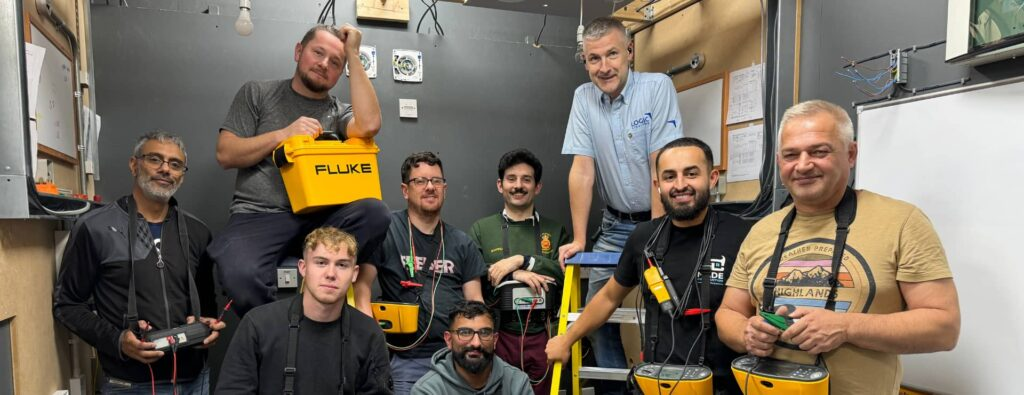
Logic4Training – https://www.logic4training.co.uk/courses/gas/
- Training centres in Northolt, Luton, Basildon, and Sittingbourne
- A wide range of gas courses
- Get free access to Gas Engineer Software during your course and for 6 months after
TomKat Gas Training – https://tom-kat.co.uk/
- Specialists in heating, offering ACS and MLP programmes
- Get to know Derek beforehand: https://www.youtube.com/c/tomkatgastraining
Other training centres and apprenticeship opportunities can be found on the National Careers Service website.
Can You Easily Retrain as a Gas Engineer at 30, 40, or 50+?
The short answer is: Absolutely. The gas industry is one of the best trades for career changers, and age is no barrier. In fact, mature entrants are often highly successful because they bring valuable life experience, reliability, and strong customer service skills.
The Managed Learning Programmes (MLPs) are specifically designed for adult learners, providing a structured and efficient pathway into the industry. Don’t let your age hold you back; if you’re ready for a practical and rewarding new challenge, this could be the perfect move.
What About Starting Your Own Heating & Plumbing Business?
For many engineers, the ultimate goal is to be their own boss. After gaining a few years of experience, starting your own business is a natural next step that gives you control over your hours and your income.
Here are the first things you’ll need to do:
- Get Registered: Register your business as a sole trader or limited company with HMRC. Crucially, your business entity itself must also be registered with Gas Safe.
- Get Insured: Public Liability Insurance is non-negotiable. It protects you and your customers.
- Get Equipped: You’ll need to invest in a reliable van and a full set of professional tools and equipment, including a Flue Gas Analyser.
- Get Organised: Suddenly, you’re not just an engineer; you’re also the admin, finance, and marketing department. You need a system for creating quotes, sending invoices, scheduling jobs, and issuing certificates.
This is where job management software becomes essential. A tool like Gas Engineer Software is designed to handle the admin burden for you, so you can focus on the tools, not the paperwork.
Often, engineers choose to work and gain experience in a company first. Most employers are happy to support you in your ambitions of starting your own business.
Ready to Take the Next Step?
Becoming a gas engineer is a major commitment of time and money, but it leads to a highly skilled, respected, and stable career. It gives you a trade for life with a clear path to running your own successful business.
Once you’re qualified and ready to get started, having the right tools is key. Gas Engineer Software is built to help new and established engineers save hours on admin, get paid faster, and deliver a seamless service to their customers.
Explore our features or start your free trial today to see how it can support you in the field.
